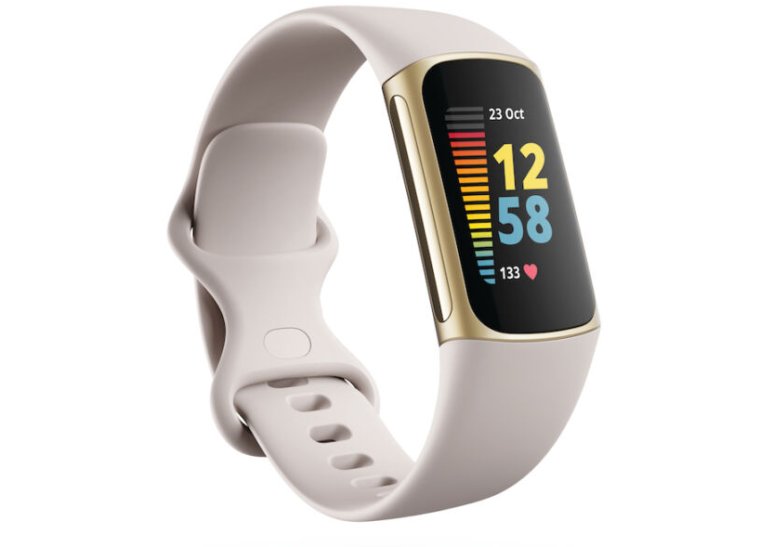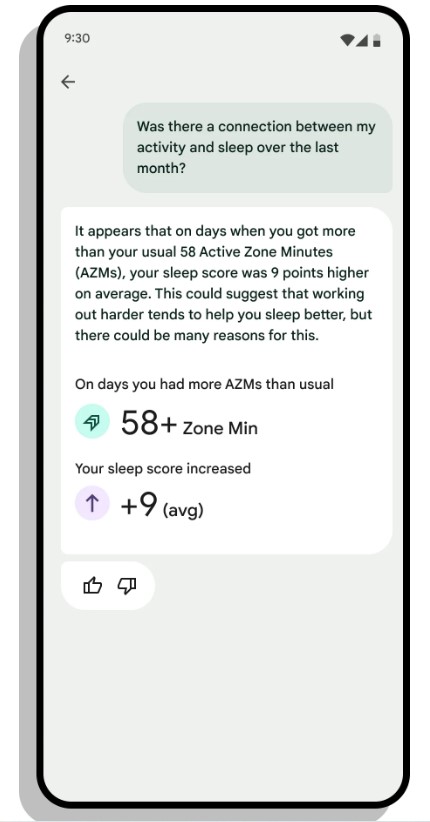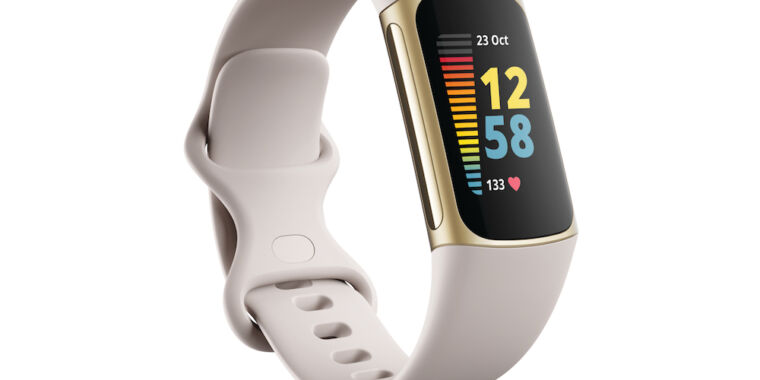[ad_1]

Fitbit
Google closed its Fitbit acquisition in 2021. Since then, the tech behemoth has pushed numerous changes to the wearable brand, including upcoming updates announced this week. While Google reshapes its fitness tracker business, though, some long-time users are regretting their Fitbit purchases and questioning if Google’s practices will force them to purchase their next fitness tracker elsewhere.
Generative AI coming to Fitbit (of course)
As is becoming common practice with consumer tech announcements, Google’s latest announcements about Fitbit seemed to be trying to convince users of the wonders of generative AI and how that will change their gadgets for the better. In a blog post yesterday, Dr. Karen DeSalvo, Google’s chief health officer, announced that Fitbit Premium subscribers would be able to test experimental AI features later this year (Google hasn’t specified when).
“You will be able to ask questions in a natural way and create charts just for you to help you understand your own data better. For example, you could dig deeper into how many active zone minutes… you get and the correlation with how restorative your sleep is,” she wrote.
DeSalvo’s post included an example of a user asking a chatbot if there was a connection between their sleep and activity and said that the experimental AI features will only be available to “a limited number of Android users who are enrolled in the Fitbit Labs program in the Fitbit mobile app.”

Google shared this image as an example of what future Fitbit generative AI features could look like.
Fitbit is also working with the Google Research team and “health and wellness experts, doctors, and certified coaches” to develop a large language model (LLM) for upcoming Fitbit mobile app features that pull data from Fitbit and Pixel devices, DeSalvo said. The announcement follows Google’s decision to stop selling Fitbits in places where it doesn’t sell Pixels, taking the trackers off shelves in a reported 29 countries.
In a blog post yesterday, Yossi Matias, VP of engineering and research at Google, said the company wants to use the LLM to add personalized coaching features, such as the ability to look for sleep irregularities and suggest actions “on how you might change the intensity of your workout.”
Google’s Fitbit is building the LLM on Gemini models that are tweaked on de-identified data from unspecified “research case studies,” Matias said, adding: “For example, we’re testing performance using sleep medicine certification exam-like practice tests.”
Gemini, which Google released in December, has been criticized for generating historically inaccurate images. After users complained about different races and ethnicities being inaccurately portrayed in prompts for things like Nazi members and medieval British kings, Google pulled the feature last month and said it would release a fix “soon.”In a press briefing, Florence Thng, director and product lead at Fitbit, suggested that such problems wouldn’t befall Fitbit’s LLM since it’s being tested by users before an official rollout, CNET reported.
Other recent changes to Fitbit include a name tweak from Fitbit by Google, to Google Fitbit, as spotted by 9to5Google this week.

Combined with other changes that Google has brought to Fitbit over the past two years—including axing most social features, the ability to sync with computers, its browser-based SDK for developing apps, and pushing users to log in with Google accounts ahead of Google shuttering all Fitbit accounts in 2025—Fitbit, like many acquired firms, is giving long-time customers a different experience than it did before it was bought.
Disheartened customers
Meanwhile, customers, especially Charge 5 users, are questioning whether their next fitness tracker will come from Fitbit Google Fitbit.
For example, in January, we reported that users were claiming that their Charge 5 suddenly started draining battery rapidly after installing a firmware update that Fitbit released in December. As of this writing, one thread discussing the problem on Fitbit’s support forum has 33 pages of comments. Google told BBC in January that it didn’t know what the problem was but knew that it wasn’t tied to firmware. Google hasn’t followed up with further explanation since. The company hasn’t responded to multiple requests from Ars Technica for comment. In the meantime, users continue experiencing problems and have reported so on Fitbit’s forum. Per user comments, the most Google has done is offer discounts or, if the device was within its warranty period, a replacement.
“This is called planned obsolescence. I’ll be upgrading to a watch style tracker from a different company. I wish Fitbit hadn’t sold out to Google,” a forum user going by Sean77024 wrote on Fitbit’s support forum yesterday.
Others, like 2MeFamilyFlyer, have also accused Fitbit of planning Charge 5 obsolescence. 2MeFamilyFlyer said they’re seeking a Fitbit alternative.
The ongoing problems with the Charge 5, which was succeeded by the Charge 6 on October 12, has some, like reneeshawgo on Fitbit’s forum and PC World Senior Editor Alaina Yee saying that Fitbit devices aren’t meant to last long. In January, Yee wrote: “You should see Fitbits as a 1-year purchase in the US and two years in regions with better warranty protections.”
For many, a year or two wouldn’t be sufficient, even if the Fitbit came with trendy AI features.
Maqvi News #Maqvi #Maqvinews #Maqvi_news #Maqvi#News #info@maqvi.com
[ad_2]
Source link












































